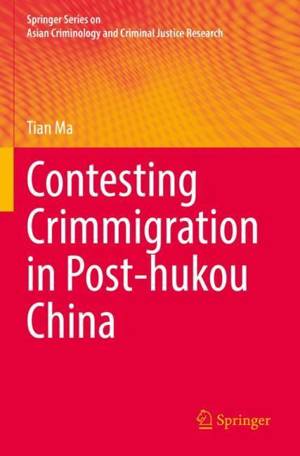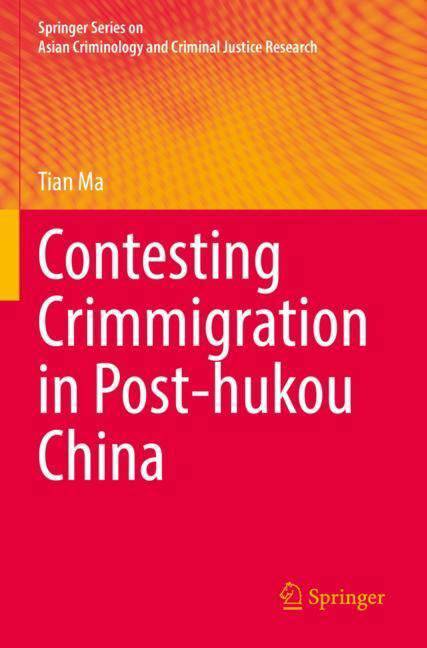
- Retrait gratuit dans votre magasin Club
- 7.000.000 titres dans notre catalogue
- Payer en toute sécurité
- Toujours un magasin près de chez vous
- Retrait gratuit dans votre magasin Club
- 7.000.0000 titres dans notre catalogue
- Payer en toute sécurité
- Toujours un magasin près de chez vous
Description
This book focuses on the criminalization trend and process regarding the internal migration in contemporary China from the perspective Law-in-Action. In Chinese society today, internal migrants are commonly perceived as criminals. Crimmigration, a global term that communicated the convergence of the criminal legal system and the immigration enforcement system, manifest itself in China's hukou-based (also known as the household registration system) criminal legal system. How hukou has been constructed into the concept of Crimmigration in China strikes at the core of the ultimate questions of this book: who is being criminalized, how does the political-economic-cultural institution known as 'hukou' shape the criminal justice process, and how has the role of hukou changed over time in the ever-changing process?
Drawing on interviews with police, prosecutors, criminal lawyers & judges, prison staff and migrant leaders in Yangtze River Delta, China, this book reflects on a historical development on hukou and its function in social control. Each chapter contributes to an extended analysis of pragmatic aspects of decision-making moments in the criminal justice system. This book will appeal to criminology researchers and students with in interest in law, politics, migration, and citizenship in contemporary China.
Spécifications
Parties prenantes
- Auteur(s) :
- Editeur:
Contenu
- Nombre de pages :
- 218
- Langue:
- Anglais
- Collection :
Caractéristiques
- EAN:
- 9783031076763
- Date de parution :
- 13-08-23
- Format:
- Livre broché
- Format numérique:
- Trade paperback (VS)
- Dimensions :
- 156 mm x 234 mm
- Poids :
- 340 g

Les avis
Nous publions uniquement les avis qui respectent les conditions requises. Consultez nos conditions pour les avis.






